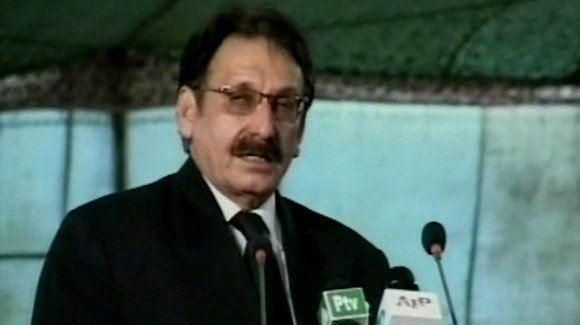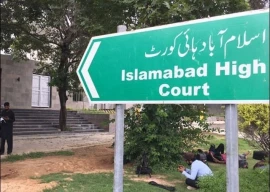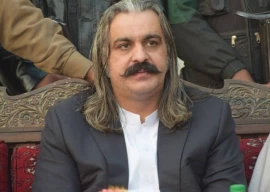
Thursday saw Pirzada dilating on the arguments he’d made earlier before the bench, which is headed by Chief Justice Iftikhar Chaudhry. Pirzada’s main contention was that the new procedure devised for the appointment of judges had destroyed the consultative process that had existed between the head of state (the president) and the head of the judiciary (the chief justice of Pakistan) with the introduction of a judicial commission and a parliamentary committee.
“Moreover, the primacy accorded to the CJ’s opinion has been diluted and undone, which is a breach of the principle laid down in Al-Jihad Trust case and will badly affect the independence of the judicary,” Pirzada submitted. “Once article 175-A is struck down by this court, the previous system will stand revived.”
Pirzada then elaborated on the doctrine of basic structure and how it applied to Pakistan. “If the parliament amends the constitution to declare Pakistan a secular state, this would be a negation of the basic structure that tells us Pakistan came into being in the name of Islam,” he explained. The same argument, he said, could be used to prevent the parliament from making any laws in conflict with the Quran and Sunnah.
According to Pirzada, federalism, a parliamentary system of governance and Islamic provisions are salient features of the constitution and the present parliament has no constitutional power to change these, even though it does have the power to legislate. “There is difference between legislative powers and constitutional powers,” he insisted.
“The court has the power to interpret the constitution but has no power to legislate but the time to define the basic features of the constitution has come,” Pirzada asserted.
Interrupting a legalistic discussion between Justice Asif Saeed Khosa and Pirzada regarding the overlap of interpretation and legislation, the chief justice said: “Justice Ramday’s July 20, 2007 judgement set aside all theories, inconsistencies and past judgements. We should settle things once and for all because this is a 17-member bench and the senior most lawyers of the country are addressing it; we should keep ground realities in mind.”
Here, Justice Jawad S. Khawaja chided the counsel for his diatribe against the amendments. “The process spanned many months and about 102 articles were amended. There must be some reason and consensus for having done so. Amending the constitution is not child’s play; it’s serious business,” he said.
Khawaja also told the chief justice that the committee had floated an advertisement regarding the constitutional amendment and received, according to the committee, 980 suggestions.
The petitioner jumped in here, pointing out that the issues had not been discussed and, unlike the practice adopted by assembly members during the framing of the 1973 constitution, no suggestions were invited from legal luminaries and none of the suggestions received were thoroughly discussed.
Here, the SC directed Attorney General Maulvi Anwarul Haq to secure the record of all suggestions submitted to the parliamentary committee for constitutional reform and place it before the court. Chaudhry also asked the AG whether suggestions were invited and whether the amendment had been debated in public or in the media. “If there was, you should bring the record of such material,” instructed the CJ.
Published in The Express Tribune, July 16th, 2010.







1732776427-0/Express-Tribune-(1)1732776427-0-270x192.webp)

1732776989-0/Untitled-design-(71)1732776989-0-270x192.webp)
1732772730-0/BeFunk_§_]__-(63)1732772730-0.jpg)






COMMENTS (2)
Comments are moderated and generally will be posted if they are on-topic and not abusive.
For more information, please see our Comments FAQ